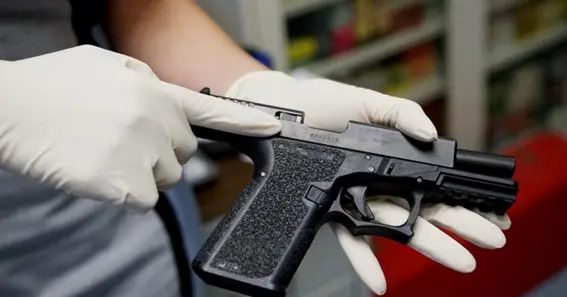Possessing a “ghost gun”—a firearm assembled from parts without serial numbers—can lead to significant legal consequences, varying by jurisdiction and individual circumstances.
Understanding Ghost Guns
Ghost guns are privately made firearms lacking serial numbers, making them untraceable. They can be assembled from kits or 3D-printed components, often bypassing background checks and registration requirements.
Also Read N: Exploring Splatxo’s OnlyFans: A Glimpse Into Ruby Reid’s Digital Presence
Federal Regulations
Under federal law, individuals prohibited from owning firearms (e.g., convicted felons, individuals dishonorably discharged from the military) are barred from possessing any firearm, including ghost guns. Violating this can result in charges under 18 U.S.C. § 922(g), leading to fines and imprisonment.
Also Read P: Movies Similar To TV Show Warrior: Top Action-Packed Martial Arts Films
State Laws
State regulations on ghost guns vary:
- California: Requires serialization and registration of self-made firearms. Possession of unserialized guns can lead to criminal charges.
- Massachusetts: Recent legislation criminalizes possession of ghost guns, with penalties including fines and imprisonment.
- Other States: Laws differ; some have stringent regulations, while others are more lenient. It’s crucial to understand local laws to avoid legal issues.
Potential Penalties
Penalties for possessing a ghost gun depend on jurisdiction and specific circumstances:
- Criminal Charges: Can range from misdemeanors to felonies, influenced by state laws and the individual’s status (e.g., prior convictions).
- Fines and Imprisonment: Convictions may result in substantial fines and imprisonment, with severity based on the offense and jurisdiction.
Recent Developments
The rise in ghost gun usage has prompted stricter regulations:
- Federal Level: The Biden administration implemented rules requiring serialization and background checks for ghost gun kits. These rules face legal challenges but reflect increased regulatory efforts.
- State Initiatives: States like Massachusetts have enacted laws targeting ghost guns, with immediate effect to curb their proliferation.
FAQ
- What is a ghost gun?
- A ghost gun is a privately assembled firearm without a serial number, making it untraceable.
- Are ghost guns legal?
- Legality varies by jurisdiction. Some states have strict regulations, while others permit ownership under certain conditions.
- What are the penalties for possessing a ghost gun?
- Penalties range from fines to imprisonment, depending on state laws and individual circumstances.
- Do federal laws prohibit ghost guns?
- Federal law doesn’t ban ghost guns outright but prohibits possession by certain individuals and imposes regulations on serialization and background checks.
- How can I ensure compliance with ghost gun laws?
- Stay informed about federal and state regulations, and consult legal experts to ensure compliance.
Understanding the legal landscape surrounding ghost guns is essential to avoid severe penalties. Staying informed and compliant with laws can prevent significant legal repercussions.










